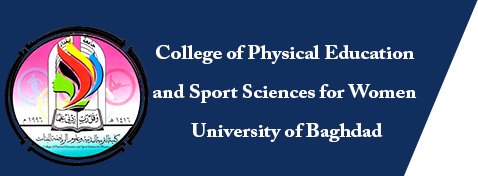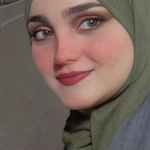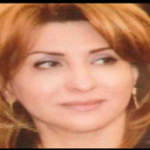The theoretical sciences department at the College of Physical Education and Sports Sciences for Women – University of Baghdad is one of the fundamental branches aimed at providing students with scientific knowledge and academic skills in the field of physical education. This department focuses on studying the theoretical aspects related to sports through a comprehensive curriculum. It seeks to prepare qualified leaders capable of developing and implementing modern sports programs. Additionally, the department enhances the research and creative abilities of students, contributing to improving the quality of life and public health. This department offers distinguished education that combines theory and practice.
The theoretical sciences department at the College of Physical Education and Sports Sciences for Women – University of Baghdad is one of the fundamental branches aimed at providing students with scientific knowledge and academic skills in the field of physical education. This department focuses on studying the theoretical aspects related to sports through a comprehensive curriculum. It seeks to prepare qualified leaders capable of developing and implementing modern sports programs. Additionally, the department enhances the research and creative abilities of students, contributing to improving the quality of life and public health. This department offers distinguished education that combines theory and practice.
Objectives, vision and mission of the branch of theoretical sciences
The science branch is one by one of the branches of the College of Physical Education for Girls. The branch consists of (12) male and female teachers who specialize in teaching the following theoretical lessons:
Trademarks, these materials for the four stages and as follows:
A- The first stage (history and philosophy of physical education, Arabic language, human rights and democracy, anatomy, computers, scouting education)
B – The second stage (science of sports training, training physiology, biomechanics, tests and measurements, teaching methods, English language, computer).
C – The third stage (motor learning, mathematical rehabilitation, teaching methods, scientific research, English language, statistics).
D – the fourth stage (sports psychology, sports training science, teaching methods, management and organization, English language, sports properties, research project).
Branch laboratories:
The branch supervises its own laboratories, which are:
Computers laboratory in the branch of theoretical sciences.
Computers Laboratory in the Graduate Studies Department.
Smart Hall Lab.
Vision:
Excellence and leadership in employing sports science in the service of the applied side.
the message :
We seek to invest theoretical sciences in practical applications creatively and innovatively using modern technology.
Educational goals:
Adopting modern education technologies as a basis in education, not as an intermediary, and providing them in various forms to access information in the easiest and least expensive way.
Among other tasks of the branch of theoretical sciences is that it seeks to achieve the following:
A / National Development:
1- Instilling the spirit of good citizenship in the student through good treatment and respect for others, developing honesty and preserving the environment.
2- Activating the role of the student in educating the family as a leader by working to instill love for the homeland and belonging and work for its upliftment and renaissance.
3- Educating the students and informing about the rights and duties of individuals in society according to the constitution and the role of laws in establishing stability in society and the need to abide by them .
4- Educating the students about the current public issues that the community suffers from and motivates them to participate in community activities and interact with them .
5 – Providing the student with a positive and realistic understanding of the political system of society and the need to participate in political decisions affecting the course of there lifes in there current environment.
B / cognitive development:
1 – Making the student the main axis and the main target of the educational process by drawing achievable educational methodological goals to ensure easy and fast learning for all students and at all levels of study .
2 – Providing all the requirements, tools and modern educational means to make it easy for student’s to access various cognitive skills during the theoretical lessons of the practical subject.
3 – Exploiting all available capabilities and alternatives to confront any thorny situation or obstructing the course of the educational process, and trying to contain these situations and overcome them successfully .
4 – Developing the ability to think critically and solve problems by developing the student’s perceptions of educational concepts and intellectual foundations and their social applications .
5 – Motivating the student to actively participate in practical lessons through guidance, facilitation, encouragement, and the use of all modern strategies that focus on increasing the student’s effectiveness with practical lessons .
C / social development:
1 – Building the personality of the students and forming them in all aspects, personal, physical and psychological, and achieving a balance between all these qualities .
2 – Helping the student to adapt in society through them acquisition of different skills, knowledge and attitudes that are appropriate to there environment and society .
3 – Instilling the spirit of cooperative voluntary work among the students and spreading awareness of its positive impact on the development of the college and society.
4 – Training the students on good behaviour, independence and sound rules of life .
5 – Increasing the students self-confidence and developing high morale in facing life’s requirements and difficulties .
Obstacles and challenges faced by the branch :
1 – Weak openness to competing colleges to gain experience, poor communication and openness to arab and international universities
2 – Poor capabilities in providing halls and stadiums for team games
3 – The lack of financial allocations negatively affected the assignment of professors to prepare textbooks.
4 – Weak openness to the labor market and updating curricula according to needs.
5 – Weak participation of the private sector and the labor market .
Academic Science Branch Council
The branch council is formed to discuss the branch’s plan and all the scientific and educational issues of the branch, and to find solutions to the problems that the branch may face.
The branch council consists of:
-
Asst. Prof. Dr. Zainab Ali Abdulameer – Chair
-
Asst. Prof. Dr. Iman Subaih Hussein – Member
-
Asst. Prof. Dr. Sara Ahmed Saleh – Member
-
Lecturer Rasha Waleed Taha – Member
-
Asst. Lecturer Noor Al-Huda Hameed Farhan – Member
*************************************
Scientific Committee of the Theoretical Sciences Branch
One of the tasks of the Scientific Committee is to watch the scientific issues of the teachers
–Evaluating performance and discussing proposals of the branch
-Approval of the scientific research
Books authored by the teaching staff of the Theoretical sciences branch
*************************************
The scientific committee in Theoretical sciences branch consists of:
-
Prof. Dr. Nihad Mohammed Alwan – Chair
-
Prof. Dr. Noor Hatem Reda – Member
-
Asst. Prof. Dr. Maysaa Nadeem Ahmed – Member
Objectives, vision and mission of the branch of theoretical sciences
The science branch is one by one of the branches of the College of Physical Education for Girls. The branch consists of (12) male and female teachers who specialize in teaching the following theoretical lessons:
Trademarks, these materials for the four stages and as follows:
A- The first stage (history and philosophy of physical education, Arabic language, human rights and democracy, anatomy, computers, scouting education)
B – The second stage (science of sports training, training physiology, biomechanics, tests and measurements, teaching methods, English language, computer).
C – The third stage (motor learning, mathematical rehabilitation, teaching methods, scientific research, English language, statistics).
D – the fourth stage (sports psychology, sports training science, teaching methods, management and organization, English language, sports properties, research project).
Branch laboratories:
The branch supervises its own laboratories, which are:
Computers laboratory in the branch of theoretical sciences.
Computers Laboratory in the Graduate Studies Department.
Smart Hall Lab.
Vision:
Excellence and leadership in employing sports science in the service of the applied side.
the message :
We seek to invest theoretical sciences in practical applications creatively and innovatively using modern technology.
Educational goals:
Adopting modern education technologies as a basis in education, not as an intermediary, and providing them in various forms to access information in the easiest and least expensive way.
Among other tasks of the branch of theoretical sciences is that it seeks to achieve the following:
A / National Development:
1- Instilling the spirit of good citizenship in the student through good treatment and respect for others, developing honesty and preserving the environment.
2- Activating the role of the student in educating the family as a leader by working to instill love for the homeland and belonging and work for its upliftment and renaissance.
3- Educating the students and informing about the rights and duties of individuals in society according to the constitution and the role of laws in establishing stability in society and the need to abide by them .
4- Educating the students about the current public issues that the community suffers from and motivates them to participate in community activities and interact with them .
5 – Providing the student with a positive and realistic understanding of the political system of society and the need to participate in political decisions affecting the course of there lifes in there current environment.
B / cognitive development:
1 – Making the student the main axis and the main target of the educational process by drawing achievable educational methodological goals to ensure easy and fast learning for all students and at all levels of study .
2 – Providing all the requirements, tools and modern educational means to make it easy for student’s to access various cognitive skills during the theoretical lessons of the practical subject.
3 – Exploiting all available capabilities and alternatives to confront any thorny situation or obstructing the course of the educational process, and trying to contain these situations and overcome them successfully .
4 – Developing the ability to think critically and solve problems by developing the student’s perceptions of educational concepts and intellectual foundations and their social applications .
5 – Motivating the student to actively participate in practical lessons through guidance, facilitation, encouragement, and the use of all modern strategies that focus on increasing the student’s effectiveness with practical lessons .
C / social development:
1 – Building the personality of the students and forming them in all aspects, personal, physical and psychological, and achieving a balance between all these qualities .
2 – Helping the student to adapt in society through them acquisition of different skills, knowledge and attitudes that are appropriate to there environment and society .
3 – Instilling the spirit of cooperative voluntary work among the students and spreading awareness of its positive impact on the development of the college and society.
4 – Training the students on good behaviour, independence and sound rules of life .
5 – Increasing the students self-confidence and developing high morale in facing life’s requirements and difficulties .
Obstacles and challenges faced by the branch :
1 – Weak openness to competing colleges to gain experience, poor communication and openness to arab and international universities
2 – Poor capabilities in providing halls and stadiums for team games
3 – The lack of financial allocations negatively affected the assignment of professors to prepare textbooks.
4 – Weak openness to the labor market and updating curricula according to needs.
5 – Weak participation of the private sector and the labor market .
Academic Science Branch Council
The branch council is formed to discuss the branch’s plan and all the scientific and educational issues of the branch, and to find solutions to the problems that the branch may face.
The branch council consists of:
-
Asst. Prof. Dr. Zainab Ali Abdulameer – Chair
-
Asst. Prof. Dr. Iman Subaih Hussein – Member
-
Asst. Prof. Dr. Sara Ahmed Saleh – Member
-
Lecturer Rasha Waleed Taha – Member
-
Asst. Lecturer Noor Al-Huda Hameed Farhan – Member
*************************************
Scientific Committee of the Theoretical Sciences Branch
One of the tasks of the Scientific Committee is to watch the scientific issues of the teachers
–Evaluating performance and discussing proposals of the branch
-Approval of the scientific research
Books authored by the teaching staff of the Theoretical sciences branch
*************************************
The scientific committee in Theoretical sciences branch consists of:
-
Prof. Dr. Nihad Mohammed Alwan – Chair
-
Prof. Dr. Noor Hatem Reda – Member
-
Asst. Prof. Dr. Maysaa Nadeem Ahmed – Member


